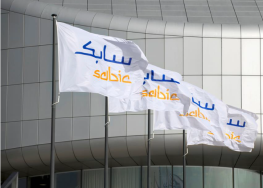
Recently, the Saudi Basic Industries Corporation (SABIC) signed a major agreement to build its polycarbonate plant in Cartagena, Spain into the world's first large-scale chemical production base that operates entirely on renewable energy.
Based on the agreement, Iberdrola, one of the world's largest power companies, will invest nearly 70 million euros in the construction of a 100-megawatt solar photovoltaic power station on SABIC's land. Equipped with 263,000 battery panels, the power station will become Europe's largest industrial-use renewable energy power generation facility when it is fully put into operation in 2024.
The agreement period of this cooperation is as long as 25 years, which has set another major milestone for SABIC's global journey to use cleaner energy in its operations. SABIC plans to deploy 4 GW of wind or solar power generation facilities for its global factories by 2025, and increase this number to 12 GW by 2030. In 2019, SABIC has installed solar panels for its factories in India and Thailand, reducing greenhouse gas emissions by up to 200 tons. In addition, SABIC's "Innovation House" located in Riyadh, the capital of Saudi Arabia, has achieved full photovoltaic power supply since 2015.
Dr. Bob Maughon, SABIC’s Executive Vice President of Sustainability, Technology and Innovation, Chief Technology Officer and Chief Sustainability Officer, said: “Through this milestone cooperation with Iverdrola, we It has taken another solid step towards the company’s long-term goals of sustainable development and clean energy. The close cooperative relationship established between our two parties is also the cornerstone of SABIC’s business growth model. Cartagena Solar Photovoltaic Power Plant The launch of the project not only demonstrates our continuous advancement of the sustainable development agenda of the chemical industry, but also proves the feasibility of such a large-scale transformation."
Dr. Bob Mohn added: “Thanks to the many technological breakthroughs made in the field of renewable energy in recent years, large-scale projects like ours have gradually been equipped with conditions for smooth implementation. SABIC’s firm commitment to technology and innovation encourages We are always at the forefront of the industry. At the same time, it also means that we have an excellent advantage to carry out such a pioneering transformation immediately. The photovoltaic power station will help us indirectly reduce 80,000 tons of carbon dioxide emissions each year, and further strengthen our commitment to the European Union. Support and contribution to a series of climate change response initiatives, including the '2030 Climate and Energy Framework', and deepen our fit and response to the United Nations Sustainable Development Goals."
After the Cartagena solar photovoltaic power plant is put into production, SABIC customers, especially those in the automotive and construction industries, will have the opportunity to obtain 100% polycarbonate products and solutions produced from renewable energy. In today's unremitting pursuit of low-carbon environmental protection, SABIC will also more effectively meet the urgent needs of customers and consumers for more sustainable solutions.
Eduardo Insunza, Global Director of Corporate Clients of Iverdrola, said: “A major cooperation such as ours and SABIC can not only effectively strengthen the market competitiveness of renewable energy, but also help those who aim to reshape the current status and future of the energy industry. The innovative projects continue to open up more development opportunities. Long-term power purchase agreements have the ability to inject more stability into related investments. For large customers who are committed to obtaining clean and sustainable energy, they have already become them. The tool of choice for managing power supply."
In Riyadh, SABIC's global headquarters is actively preparing for the application of photovoltaic power generation technology. The feasibility of the 300 MW solar array project jointly launched by its public facilities joint venture company Marafiq and the Royal Commission for Jubail and Yanbu (Royal Commission for Jubail and Yanbu) Research has also entered the final stage. The project is located on the west coast of Saudi Arabia and is planned to cost 300 million US dollars. After completion, the electricity produced will be uniformly distributed by SABIC for use by local chemical plants.
.jpg)
.jpg)